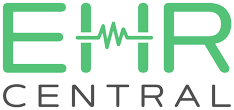Navigating Internal Medicine Billing Complexities: Best Practices for Success
Medical billing is crucial to any healthcare practice, including internal medicine. It plays a pivotal role in ensuring that healthcare providers receive proper reimbursement for their services while also maintaining compliance with ever-evolving regulations.

However, internal medicine billing can be complex and challenging due to the intricacies of coding, insurance claims, and changing billing guidelines. In this blog, we will explore the complexities of internal medicine billing and provide you with best practices to navigate these challenges successfully.
Understanding the Complexities
1.Evolving Coding System:
The healthcare industry relies on the Current Procedural Terminology (CPT) and International Classification of Diseases (ICD) coding systems to bill for services. These codes are constantly updated, making it essential for billers to stay updated on the latest changes to ensure accurate billing.
2. Insurance Variability:
Different insurance providers may have varying billing requirements, making it necessary to adapt billing processes to each insurance company’s guidelines. Failing to do so can result in claim denials or delayed payments.
3. Compliance and Regulations:
Healthcare billing is highly regulated, and non-compliance can lead to severe consequences, including fines and legal issues. Billers must stay current with regulations such as the Health Insurance Portability and Accountability Act (HIPAA) and other state-specific laws.
4. Denied Claims:
Denied claims are a common issue in medical billing. Reasons for denials can range from simple errors to more complex issues, such as missing documentation or incorrect coding.
How EHRCentral enhances your healthcare practice?
Best Practices for Success
1. Invest in Training and Education:
Stay up to date with the latest coding changes, billing regulations, and insurance guidelines. Invest in ongoing training and education for your billing team to ensure they have the knowledge and skills required for successful internal medicine billing.
2. Use Technology Wisely:
Utilize medical billing software and electronic health record (EHR) systems to streamline your billing processes. These tools can help reduce errors, improve efficiency, and provide real-time access to patient data.
3. Prioritize Accurate Documentation:
Accurate and detailed patient documentation is crucial for successful billing. Ensure that your healthcare providers document all services, procedures, and diagnoses correctly to support the claims submitted.
4. Regularly Review Denials:
Establish a system for monitoring and addressing denied claims promptly. Identify recurring issues and implement solutions to reduce future denials.
5. Verify Insurance Eligibility:
Verify patients’ insurance eligibility before each appointment to avoid billing issues related to coverage, deductible, or copayment.
6. Create Clear Billing Policies:
Develop clear and consistent billing policies for your internal medicine practice. Educate both your staff and patients about these policies to minimize misunderstandings.
7. Outsource or Partner with Experts:
Consider outsourcing your medical billing to professionals who specialize in internal medicine billing. These experts are well-versed in the complexities of the field and can help you maximize revenue while minimizing errors.
Navigating the complexities of internal medicine billing requires a combination of knowledge, skill, and adaptability. By staying informed about industry changes, investing in education and technology, and implementing best practices, you can enhance the financial health of your internal medicine practice while ensuring compliance with regulations. Ultimately, successful billing processes benefit your practice and contribute to the quality of patient care you provide.





